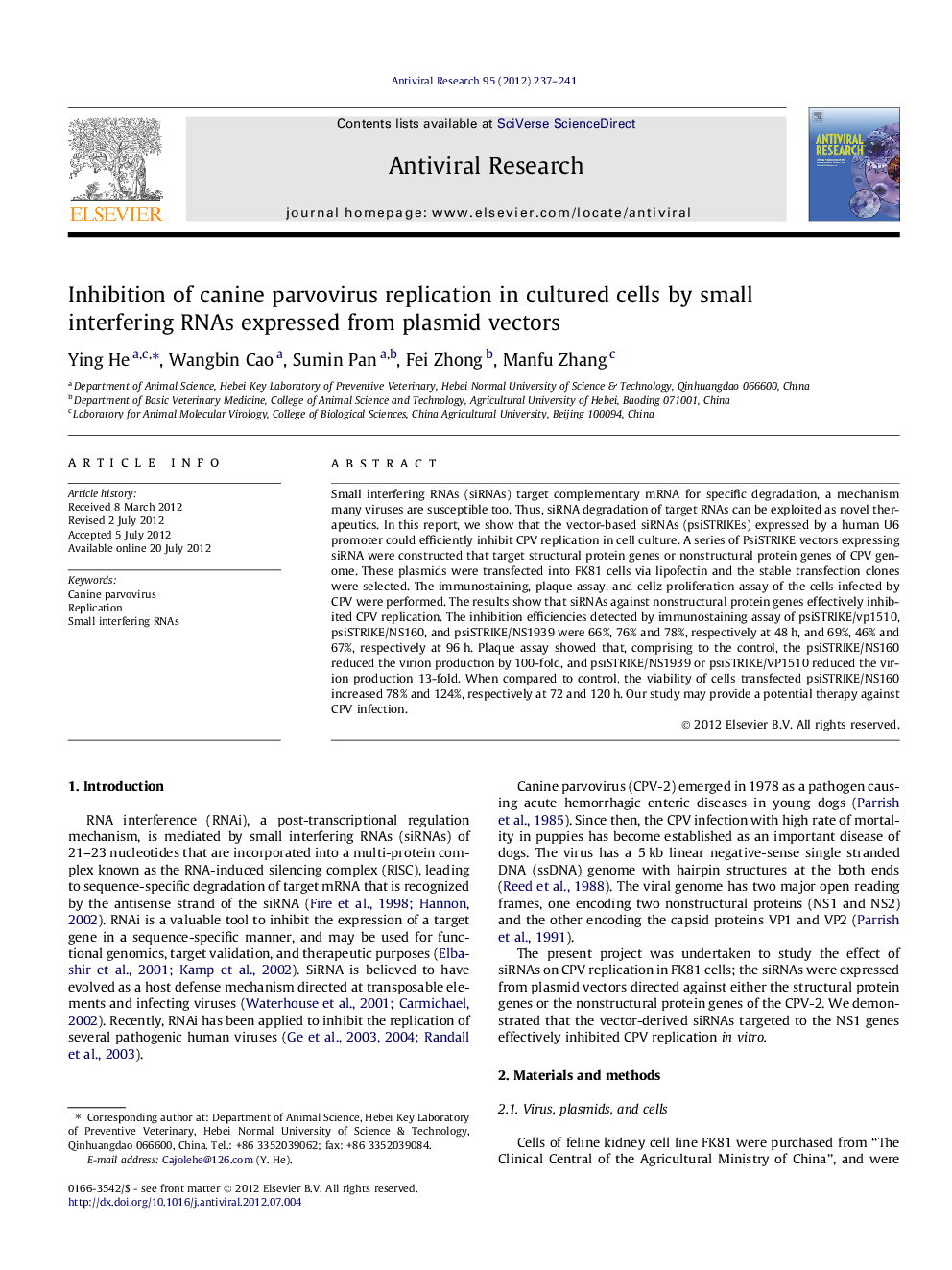| Article ID | Journal | Published Year | Pages | File Type |
|---|---|---|---|---|
| 2510025 | Antiviral Research | 2012 | 5 Pages |
Small interfering RNAs (siRNAs) target complementary mRNA for specific degradation, a mechanism many viruses are susceptible too. Thus, siRNA degradation of target RNAs can be exploited as novel therapeutics. In this report, we show that the vector-based siRNAs (psiSTRIKEs) expressed by a human U6 promoter could efficiently inhibit CPV replication in cell culture. A series of PsiSTRIKE vectors expressing siRNA were constructed that target structural protein genes or nonstructural protein genes of CPV genome. These plasmids were transfected into FK81 cells via lipofectin and the stable transfection clones were selected. The immunostaining, plaque assay, and cell proliferation assay of the cells infected by CPV were performed. The results show that siRNAs against nonstructural protein genes effectively inhibited CPV replication. The inhibition efficiencies detected by immunostaining assay of psiSTRIKE/vp1510, psiSTRIKE/NS160, and psiSTRIKE/NS1939 were 66%, 76% and 78%, respectively at 48 h, and 69%, 46% and 67%, respectively at 96 h. Plaque assay showed that, comprising to the control, the psiSTRIKE/NS160 reduced the virion production by 100-fold, and psiSTRIKE/NS1939 or psiSTRIKE/VP1510 reduced the virion production 13-fold. When compared to control, the viability of cells transfected psiSTRIKE/NS160 increased 78% and 124%, respectively at 72 and 120 h. Our study may provide a potential therapy against CPV infection.
► Target specific siRNA expressed in cell lines decreased CPV infection. ► Target specific siRNA expressed in cell lines suppressed replication of CPV. ► A siRNA targeting CPV sequences shared by genes of NS1 and NS2 had high efficiency.
